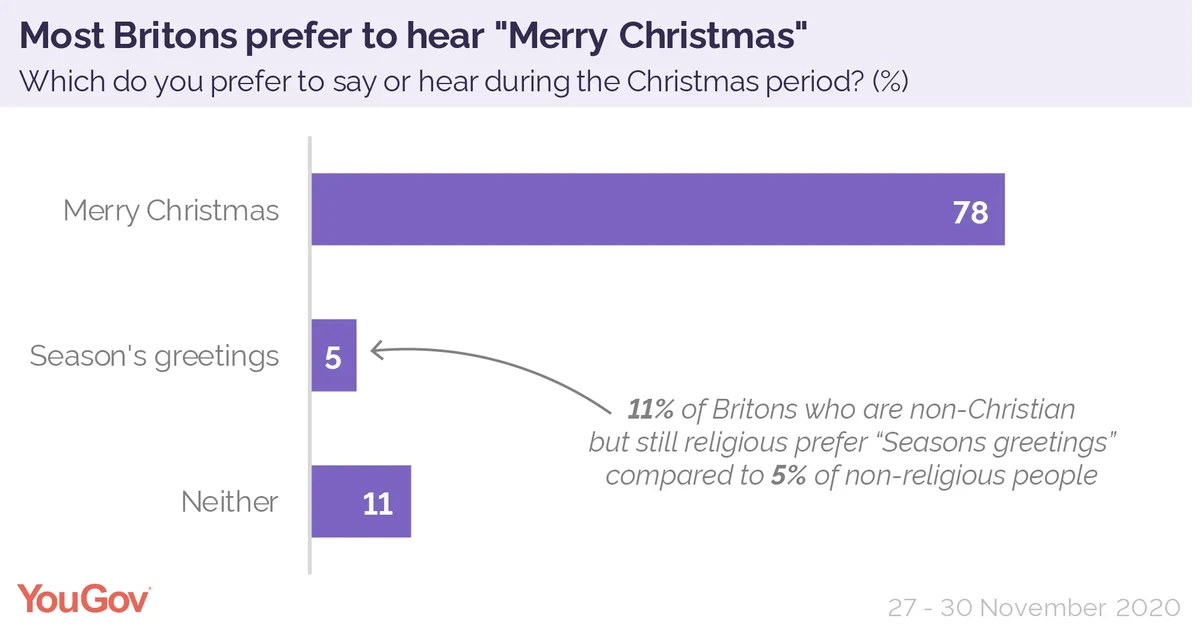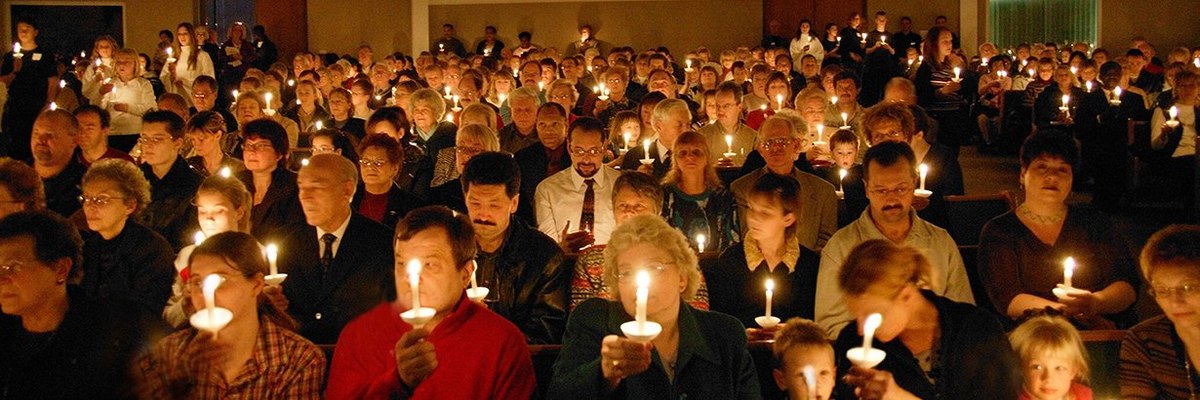The generations are divided on which holiday is more important in the Christian calendar
A new YouGov study on Christian religious holidays has found that nearly nine in ten Britons (86%) say they celebrate Christmas, while just over half (54%) celebrate Easter.
Just one in ten note they don’t celebrate either of these holidays.
Women are more likely than men to say they celebrate either holiday, with 89% saying they mark Christmas (compared to 82% of men), and 59% getting festive at Easter (compared to 48% of men).
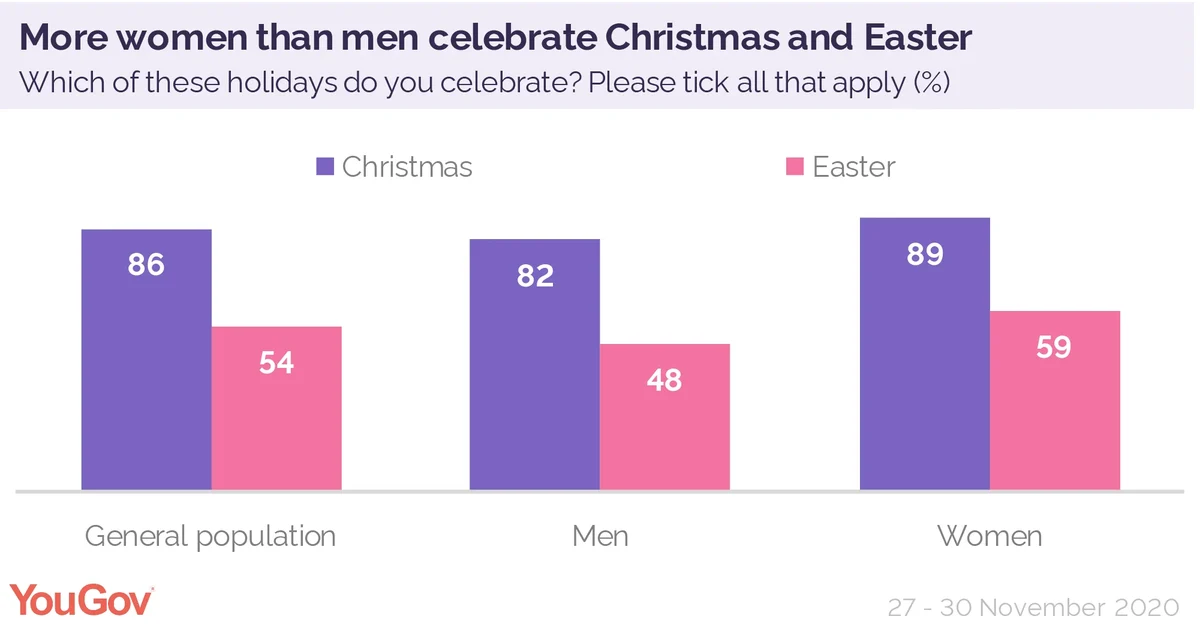
Which is more important – Christmas or Easter?
Christmas, rejoicing the birth of Jesus, and Easter, celebrating his resurrection, are the two most prominent holidays for Christianity. For many Christian denominations, Easter is considered to be a more important event.
When it comes to the question of what they think the most important Christian holiday is, for half of British Christians it’s Easter (49%), whilst just over four in ten put Christmas (42%).
We also asked the British public in general (including both those who are and are not religious) which is the most important event in the Christian calendar and Easter (41%) came slightly ahead of Christmas (38%).
There is a generational split here. In the 16-24 age group, more find Christmas important (40%) than Easter (33%); also, for those in their mid-20s and 30s, Christmas ranks higher (40%) in importance than the Easter celebrations (27%). On the other end of the scale are those in their forties and above who give more importance to the holiday celebrating the resurrection of Jesus (42% among those aged 40-59, and 46% for those 60 and older), whilst Christmas ranks lower.
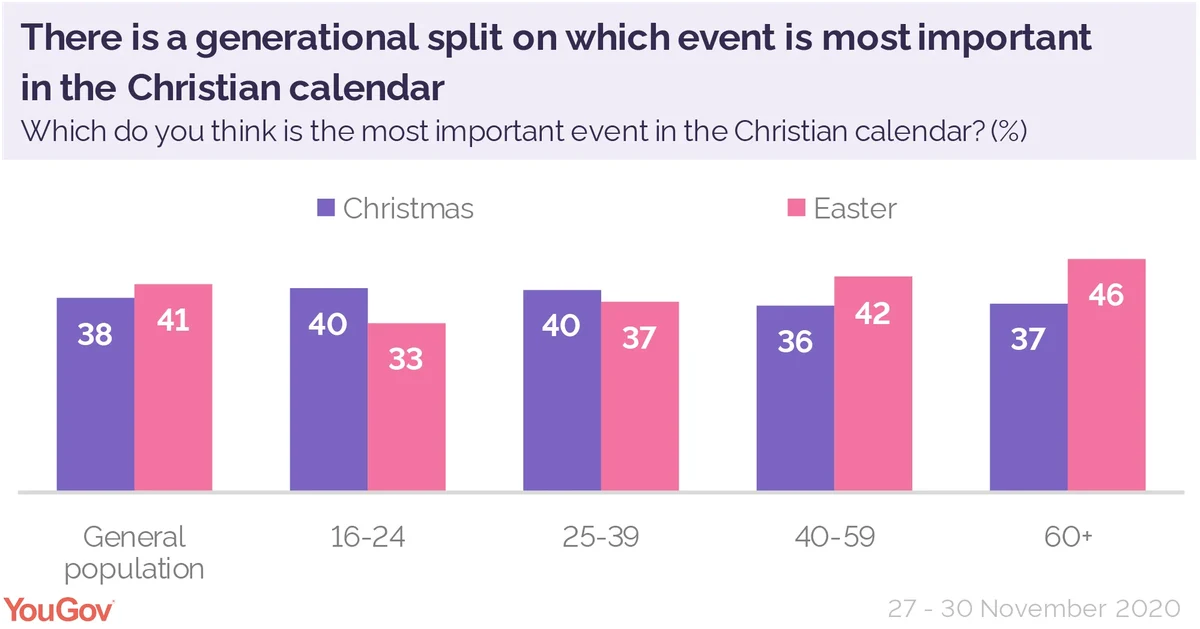
More specifically, when it comes to the importance of Christian religious holidays for those who celebrate them, Christmas comes first.
Amongst those who celebrate Christmas, half (50%) say it is ‘very important’ and a further 38% say it’s ‘somewhat important’ to them. One in eight who celebrate Christmas (12%) say it isn’t important to them.
When it comes to Easter, a quarter of those who celebrate (25%) say it’s a very important event for them and for four in ten (41%) it’s ‘somewhat important’. However, a third (33%) don’t give any importance to this holiday despite celebrating it.
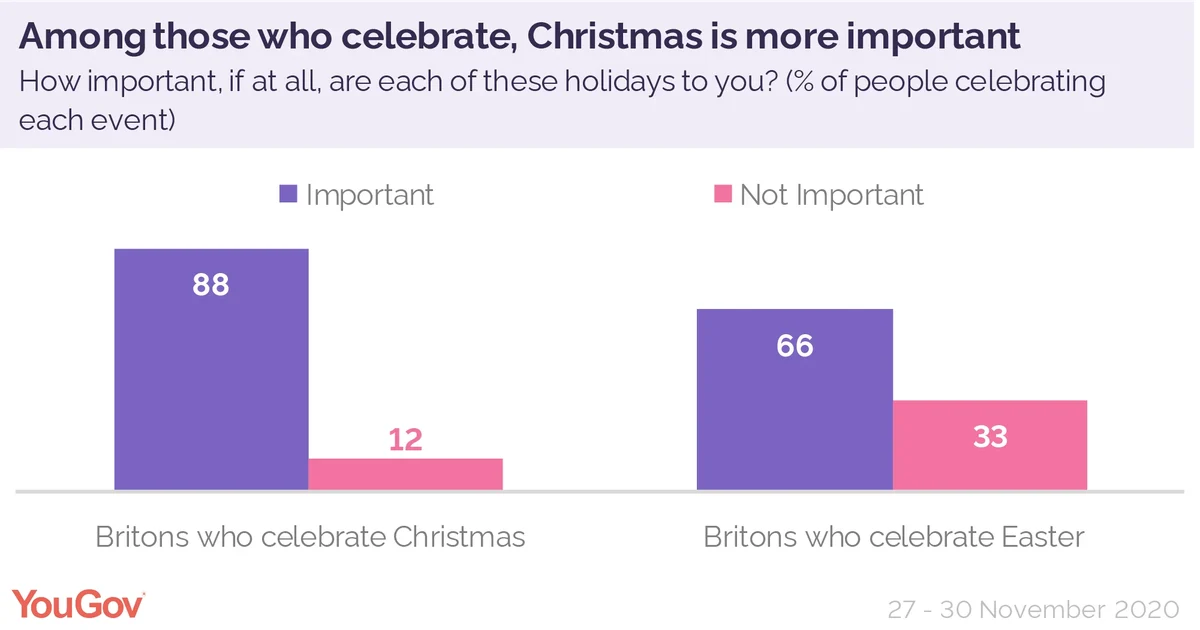
Britons on how Christmas and Easter are celebrated in the UK today
Over eight in ten Britons (83%) think that Christmas nowadays is more celebrated as a secular than a religious event. Just 8% think the opposite.
Britons are more likely to think that Easter is still celebrated as a religious event, although at 29% it is still very much a minority view. Overall, six in ten (59%) think Easter has turned more into a secular than a religious occasion.
Around eight in ten Britons say that (82%) say that the religious aspects of Christmas celebrations are declining, with seven in ten (72%) saying the same of Easter. Among those who feel this way about each festival, similar numbers share their take on whether this is a good or bad thing. Around four in ten (40-42%) who think the religious significance of Christmas and Easter is in decline say this is a bad thing, while 18% say it is a good thing and 37-40% say it is neither a good nor bad thing.
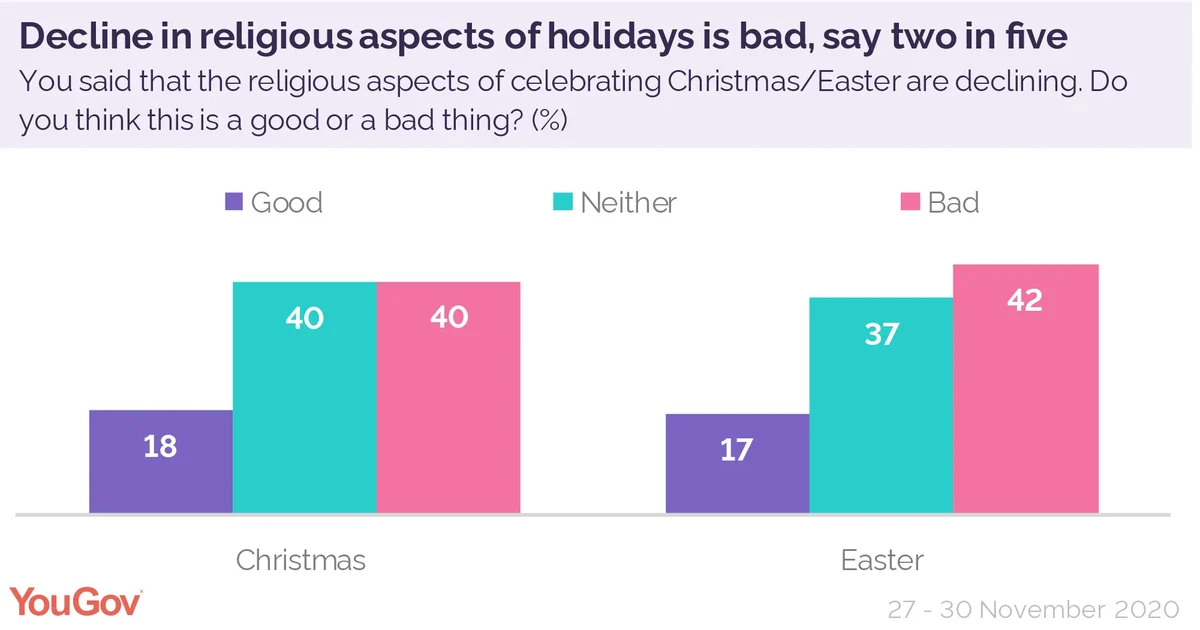
A third of the British public (34%) think that the religious aspects of celebrating Christmas should be emphasized more than they are currently, while 31% say the same for Easter. Similar proportions think things should stay as they are (29% for Christmas, 33% for Easter), whilst a fifth (18-19%) would like to see religion even further diluted from the festivities.
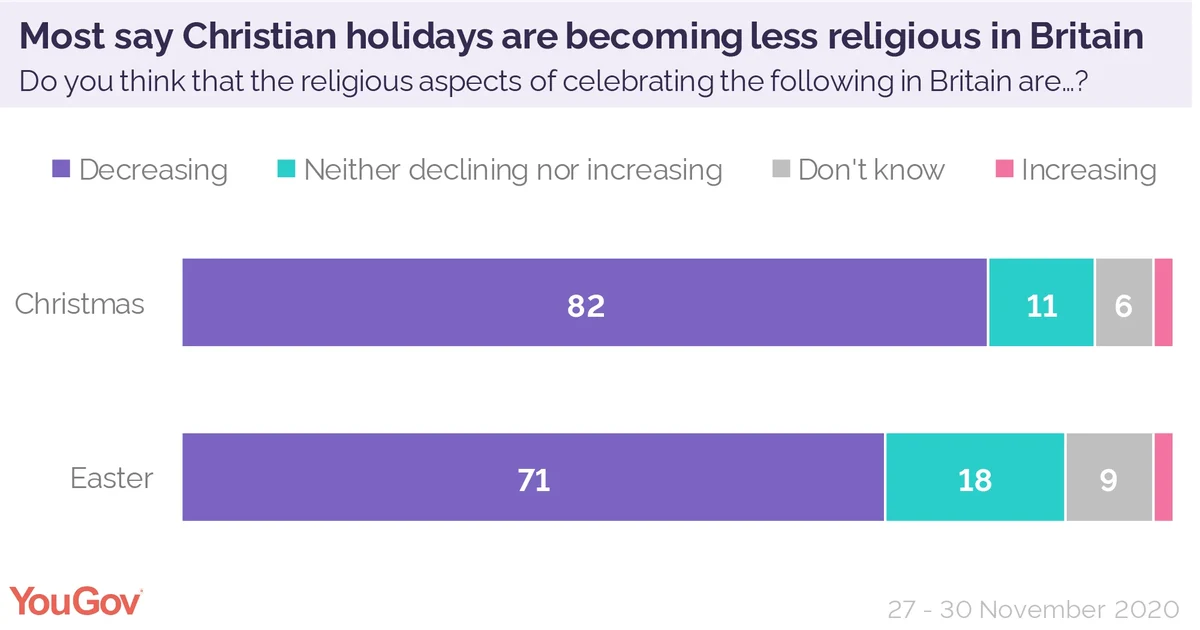
Merry Christmas or Season’s greetings?
When it comes to the way we prefer to be greeted for Christmas, the overwhelming majority of Britons (78%) say they prefer "Merry Christmas’, whilst just 5% are in favour of a more neutral ‘Season’s greetings’.
One in nine (11%), however, say they don’t like either of the greetings.
